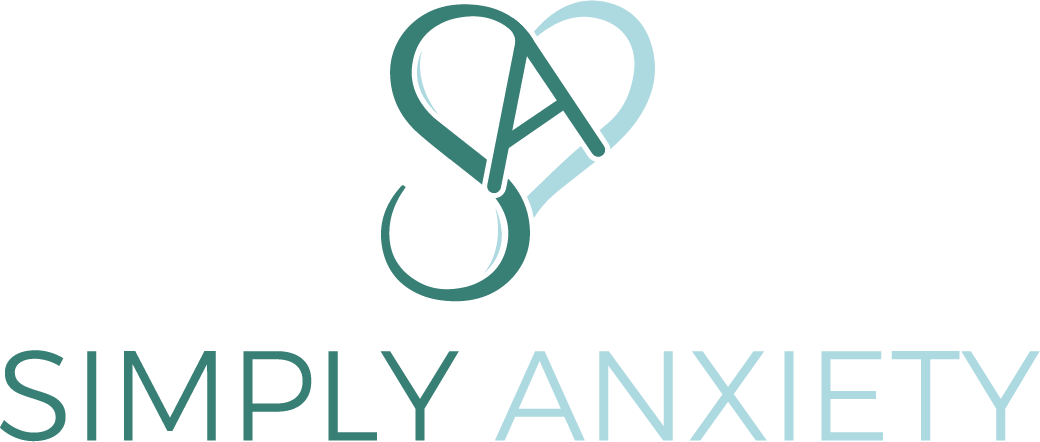Being Impulsive Is A Symptom Of Anxiety

How does Anxiety play a role in being impulsive? How are the two linked together? Signs are interesting. Everyone talks about getting signs from one place or another. Where everything seems to be pointing towards this call of action. But for someone with anxiety disorder, how do we act out our unhealthy impulses with “I got a sign.” And how could that potentially go wrong?
There has been research done on the link between anxiety and impulsivity. This is a very reasonable connection.
As someone with anxiety, I started to notice a pattern. That acting on something purely based on the fact that you perceive it as a sign is irrational. Because not every time that you do something because you think that you got a sign, turns out to be a good thing.
In this post I explore signs and how anxious individuals use signs as a way to express impulsive behavior, which can be seen as a symptom of anxiety.
I will also give three ways on how to start the process of moving away from impulsive behavior due to anxiety.
We all love to believe in signs from the universe. When we believe in signs it makes it easy to make sense of what is going on or escape certain situations or thoughts. But can signs be misleading?
How It Starts
If you’re anxious all the time, your mind is constantly overwhelmed with thoughts. But taking a minute to think things through while you’re looking at the big picture can lead to much better decisions. For those of us with anxiety, this is a more productive way to get through your life. Yes, you could rely on, “just give me sign! Someone tell me what I should do, I don’t want to deal with this problem at hand.” Because dealing with a simple issue can seem huge and the big-time stuff can seem even bigger.
Let’s imagine you go to a coffee shop; you order a coffee, and you hear music playing in the background. You recognize the song, and it triggers you into a moment of your past. Nostalgia is taking over you, pain comes up, maybe anxiety or fear.
The same thing happens once you get back in your car, you turn on the radio and hear the exact same song. This song is interpreted by you as “a sign”. A sign to take action about something.
Acting On Impulse
I think we have all been through this, where something triggers you so deeply and your nervous system feels a push to do something about it.
Have you ever noticed that Pulse & Impulsive are very similar? You strike a chord, you strike a nerve, you feel a rush. A rush to do something about this feeling that is arising. Your body is trying to justify you exploring this nerve impulse that’s coming, telling you “Well, I must feel this way for a reason, do something about it!”
For those of us with anxiety, we are very easily triggered. Because we are on edge, waiting to be set off. If we slow down and take time to process things, we wouldn’t impulsively jump into potentially bad situations.
Skip The Song
We can use the example of the song triggering you into taking action. The song starts playing and there you go, overcome with thoughts of what was or what could be. Instead of using the song to justify an unreasonable action, try watching the thought go by and drifting away, this is called meditation. Not letting your thoughts take you spiraling in your own mind.
And then, change the channel. Change the radio station! Skip the song! This is so clear and simple. If you don’t like the song or it’s making you feel bad, then listen to a different song.
Every Sign Is Against You
If you revolve your whole life around signs when things are going good in your life. It can seem like you’re in such alignment with yourself and the world around you. So, what happens when things start going wrong in your life?
Do you now start using signs to see how things are aligning negatively against you? Now there are signs everywhere that the universe is up to no good or that you yourself are no good.
Of course, there will be moments where things do align in your life and you take notice of that, and you know it’s not just a coincidence. But that is a synchronicity rather than a sign.
Synchronicities Are The Key
A synchronicity can be defined as a “Coincidence of events that appear meaningfully related but do not seem to be causally connected,” according to Google.
Sometimes people might equate signs and synchronicities together. But they are two totally different things.
A synchronicity is a beautiful reminder of how things are aligning for you, because of the work and intention you are putting in.
When something lines up and you watch it happen before your eyes, we can define this as synchronicity. You look at the product of what the universe has put together.
But when something is presenting itself as a sign, it is not a product. A sign has not been created yet. It is waiting to be picked and acted upon.
A sign is what you make it. You create your own signs, your nervous system can create signs out of thin air, it could all be a fantasy.
Get In Touch With Your Desires
For example, if you keep seeing billboards about volunteering, getting emails from a local shelter, or overhear people talking about their experiences volunteering. You might think to yourself that it is a sign you should volunteer. Or do you have a natural desire to do so? Get in tune with your own desires, maybe hearing and seeing these things has influenced you to volunteer. Maybe it doesn’t interest you at all, but you let guilt or shame convince you that’s what you should be doing.
When all we believe in is signs, we ignore our true selves, we don’t give ourselves more than a minute of our own time. What do we really want? You can get a notion from the universe but really you decide what you do with that.
Don’t put your desires onto signs. Never act on something based solely on the instance of you “getting a sign.” Because receiving a sign is subjective, there is no way to really prove that it is a sign. Receiving a sign is justifying impulsive behavior.
From the outside looking in, if someone tells you they did this or that because they got a sign and it goes well for them, you think wow that is so magical. But if it doesn’t turn out well for them you might think them acting upon a sign is very irrational or impulsive.
Be In Your Power
When things start going really wrong, you are going to start blaming the universe and all its cursed signs. Now you have entered into a state of victimhood. Where you are at the mercy of the universe, and that is no fun. There is no power there for you. However, there is power in not letting your thoughts control you. Controlling your thoughts, weighing out what is right and wrong. Think about what is reasonable.
For those who are anxious day to day, putting your belief into signs might not be the healthiest way to heal yourself. Either to heal from the anxiety or from the trauma that caused the anxiety in the first place. You have to give rational thought-out decisions a chance. Slow down, control your impulses. Step into your power.
How To Stop Being Impulsive With Small Steps
How can an anxious person not act on impulse all the time? Well for starters, doing a lot of shadow work. Understanding your trauma, journaling, sitting with yourself, and going through your own emotions. This is 3 ways to start.
3 Ways To Stop Being Impulsive

- Meditation
- Shadow-Work
- Time
Meditation
- Meditation gives you something to fall back on when you are panicking. You remember the feeling of just breathing with your eyes closed, watching each thought go by and then letting that thought become quiet. You remember that whatever situation you were in before passed and this will too. Jumping into action based off irrational decisions (a.k.a. impulsivity) might give you temporary relief, but it won’t give you long-term gain. Learning how to guide yourself will be beneficial for every aspect of your life.
Shadow-Work
- Shadow-work taps into the darker repressed side of yourself. You might have a notion that you have to maintain perfection in order for anyone to like you. Perfection is not possible and knowing that is a weight off the shoulders. Find your flaws and accept them with open arms. Discover the worst parts of you. That is the beginning of shadow-work.
Time
- Time is the most valuable thing we have in battling anxiety. And for those with anxiety disorder, it will be a slow change. Cut yourself some slack, it won’t happen for you over night. Each day when you replace one anxious thought with a rational one, it will add up to a new mindset, hopefully anxiety free.
Conclusion
Just make decisions for yourself. Don’t let so many things from the universe influence you. Take in what is going around you, process it rationally, look at the positive and negative, make an informed decision and hope for the best.
Sometimes you are going to be wrong about things but that is how you learn. Then you move on, and you are now wiser going into the next situation, and never make the same mistake twice. 😉






